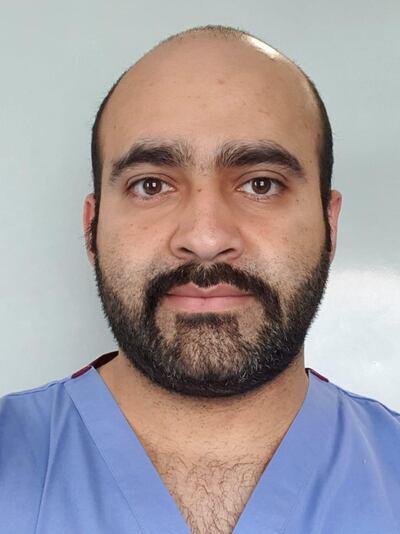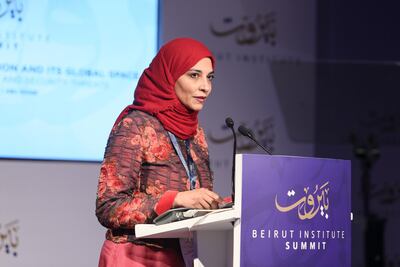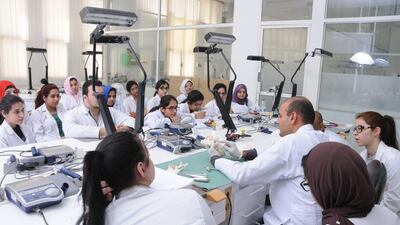There is no doubt that the GCC region is home to immensely talented and ambitious individuals with a will to succeed. Our nations have come a long way over the past few decades, and our cities have established benchmarks around the world for their rapid development and progress within a relatively short duration. We have demonstrated notable advancements in myriad fields. This is especially true in the case of entrepreneurship, which has historically been one of our greatest strengths and the key to our progress.
Given the challenges and drastic lifestyle changes resulting from the Covid-19 pandemic, our region along with the rest of the world is anxiously awaiting the arrival of a safe and effective vaccine. People across the globe share this keenness to be able to move freely as was the case prior to the pandemic, without worrying about potential contagion.
It is interesting to note that although this challenge is a global one, we are all looking to other countries, largely in the West, to present us with the solution. The West is, of course, home to corporate pharmaceutical giants, as well as to leading research facilities in science and medicine.
Although there is a distinct lack of clarity at this time about the actual distribution of the vaccine once it is finally available, it is more than likely that the political climate as well as the pricing will determine which nations have first access, and influence the channels of distribution.
People across the globe will be eager to access the vaccine as soon as possible and move past these challenging times. However, powerful names in the pharmaceutical industry as well as leading superpowers will hold sway in this matter.
Perhaps this predicament is a useful opportunity to explore the possibility of investing more proactively in medical science and R&D facilities in our region.
After all, the Arab region made notable contributions to the fields of science and medicine during what we know as the Islamic Golden Age. The world continues to build on and benefit from the impressive knowledge and insights of various Arab scholars and scientists, such as Ibn Al Haytham, hailed as the father of modern optics, and Ibn Al Nafis, known as the father of modern circulatory physiology.
This is the time to begin the journey to reclaim our place in the global scientific and medical arenas. In order to successfully create an environment that allows us to advance and innovate in these fields, we must re-examine our school curriculums and begin to make science more appealing for children everywhere.
After-school programmes, science exhibitions and competitions are all excellent ways to get our youth to engage actively with science from their early years and opt to learn it as an interest rather than a compulsory subject at school.

Similarly, if we engage with the young scientists of the upcoming decades as early in their lives as possible, we can empower them in unlocking their potential and contributing to the cause sooner rather than later.
There are several trailblazers in the Arab region and they are proof that scientific talent certainly exists in our region. One of the most notable examples of our time is Dr Hayat Sindi of Saudi Arabia, who is recognised globally for her impactful contributions in point-of-care medical testing and biotechnology.
We must empower our children to look up to the shining stars from our region and encourage them to follow in their footsteps, if they have the talent and the inclination to do so.
Our region is home to multiple quality medical schools and research facilities. However, we must explore how we can enhance and expand their frameworks so that they are able to function as centres of innovation and deliver world-class products, including treatments, vaccines and technology to combat regional and global healthcare challenges.
Both the government and the private sectors across the GCC region already offer a range of scholarships for our capable students. However, a renewed emphasis on science and medicine as exciting solutions to the world's health challenges will encourage students to explore careers in health care and related professions.

Developing our healthcare and research sectors will open up a range of opportunities for entrepreneurs, and could serve as an effective path forward in revitalising our economies in post-pandemic times – if we plan carefully and think beyond our usual confines. Apart from research and medical facilities, we could consider investing to advance medical technologies, manufacture equipment used in labs, or in the infrastructure of hospitals, educational institutions and research facilities.
A drive to innovate and develop new opportunities is the hallmark of every successful nation. The Covid-19 pandemic has resulted in a series of challenges, but it is up to us to find opportunities within our fast-evolving environment.
Through investing in medicine and related fields, we will not only be able to further diversify our economies, but can also depend less on external solutions for treatments, vaccines and medical technology in the future.
Mohammed Alardhi is executive chairman of Investcorp, chairman of Bank Sohar and was longest-serving Omani head of the Royal Air Force of Oman


